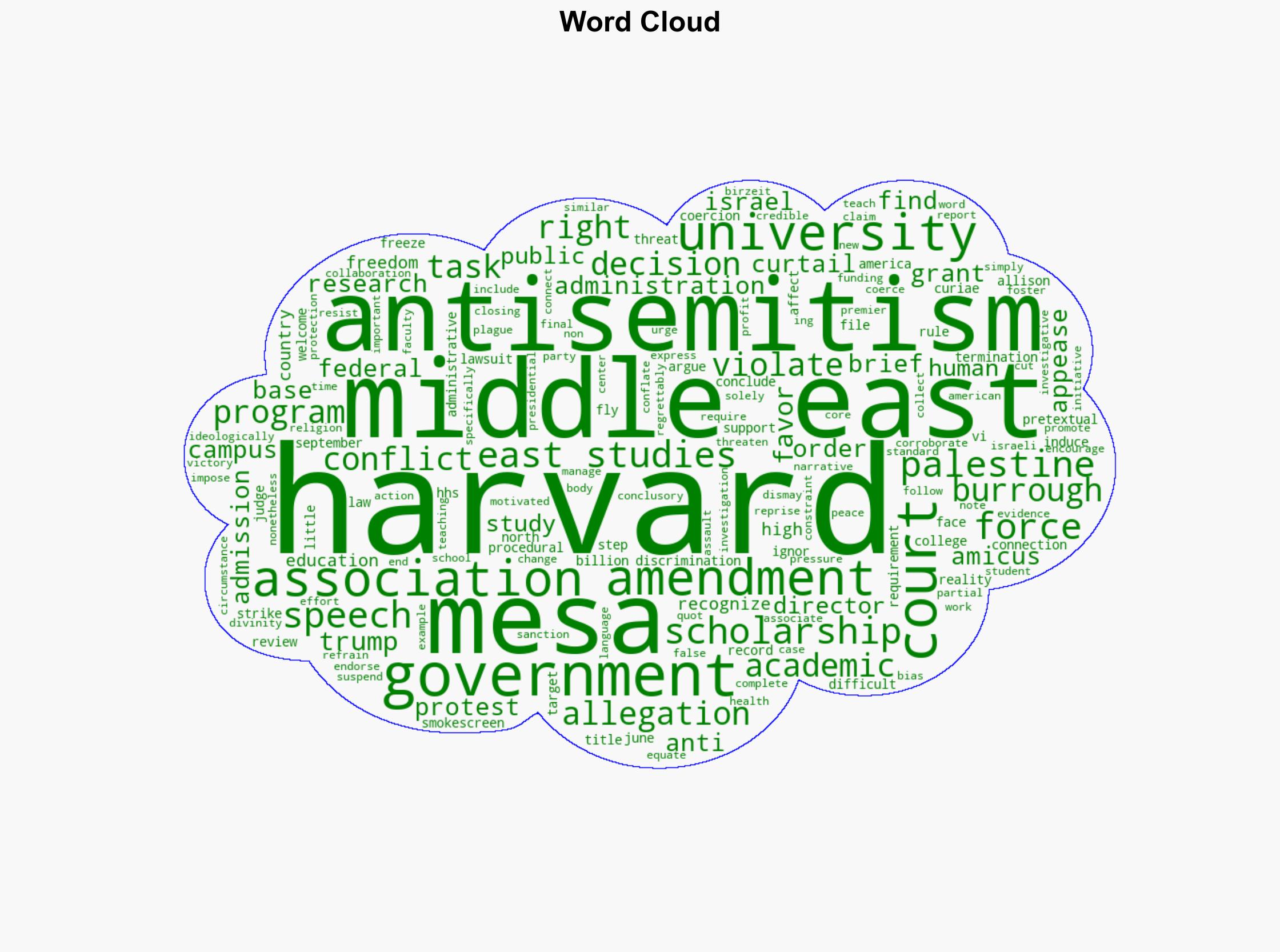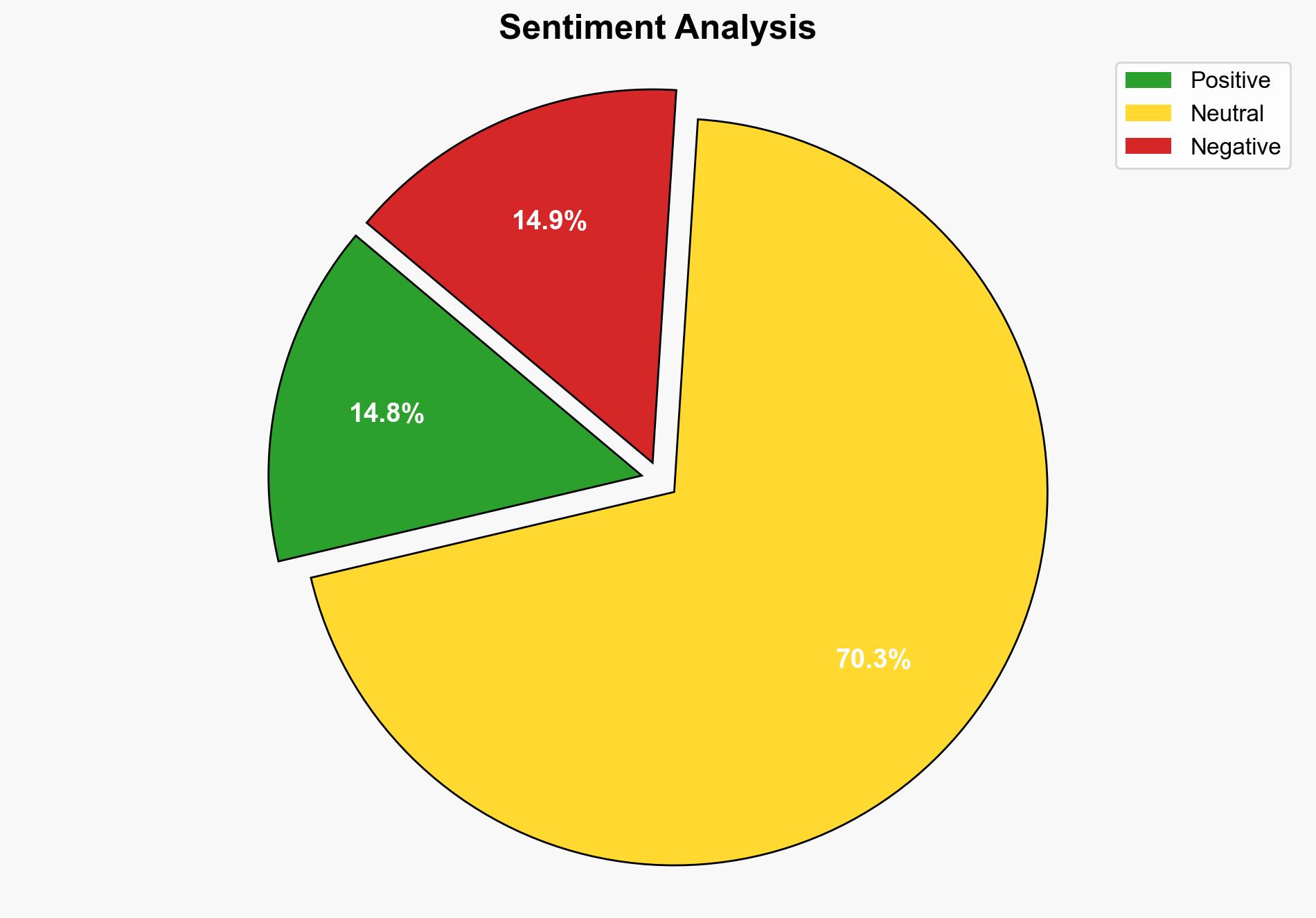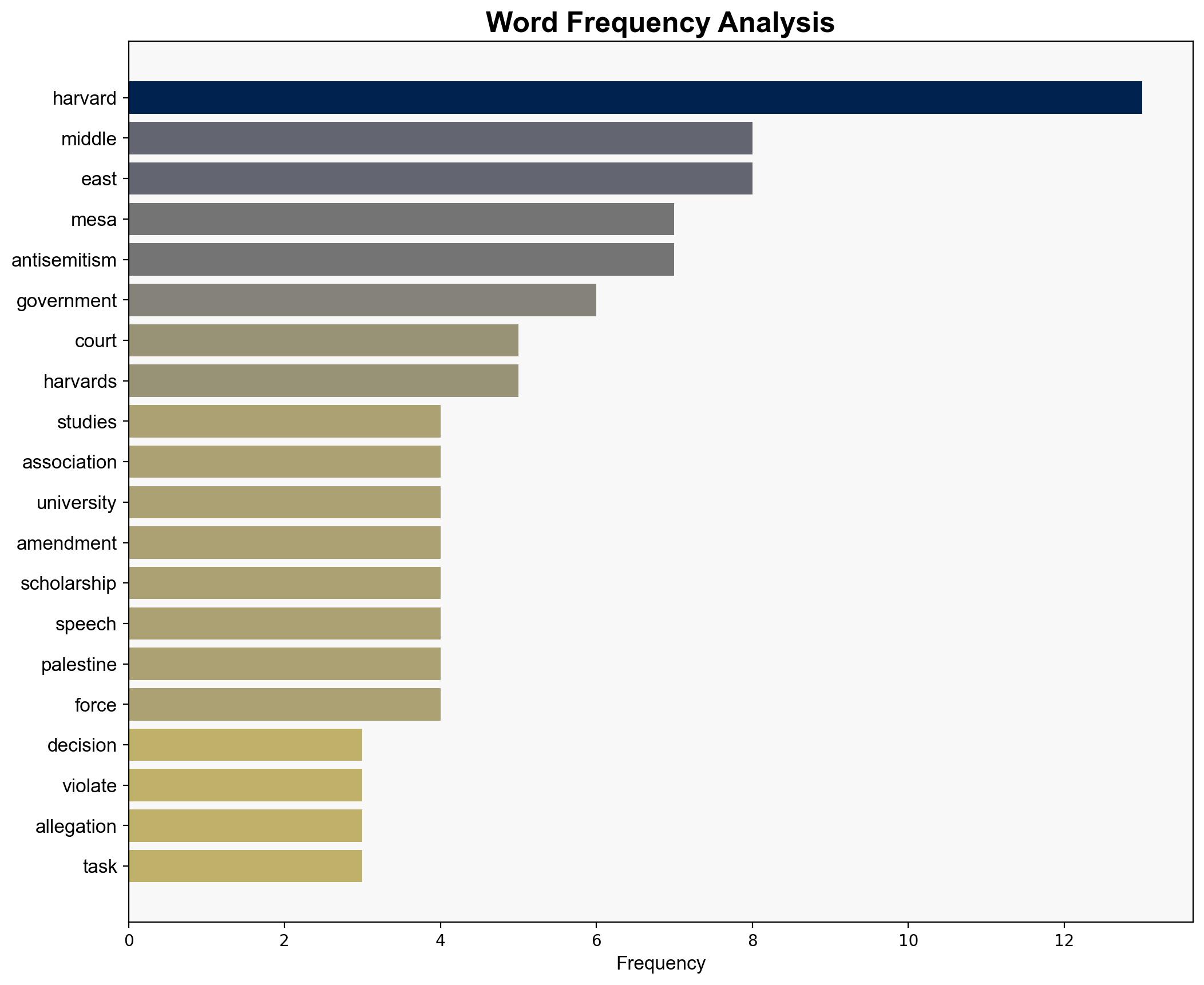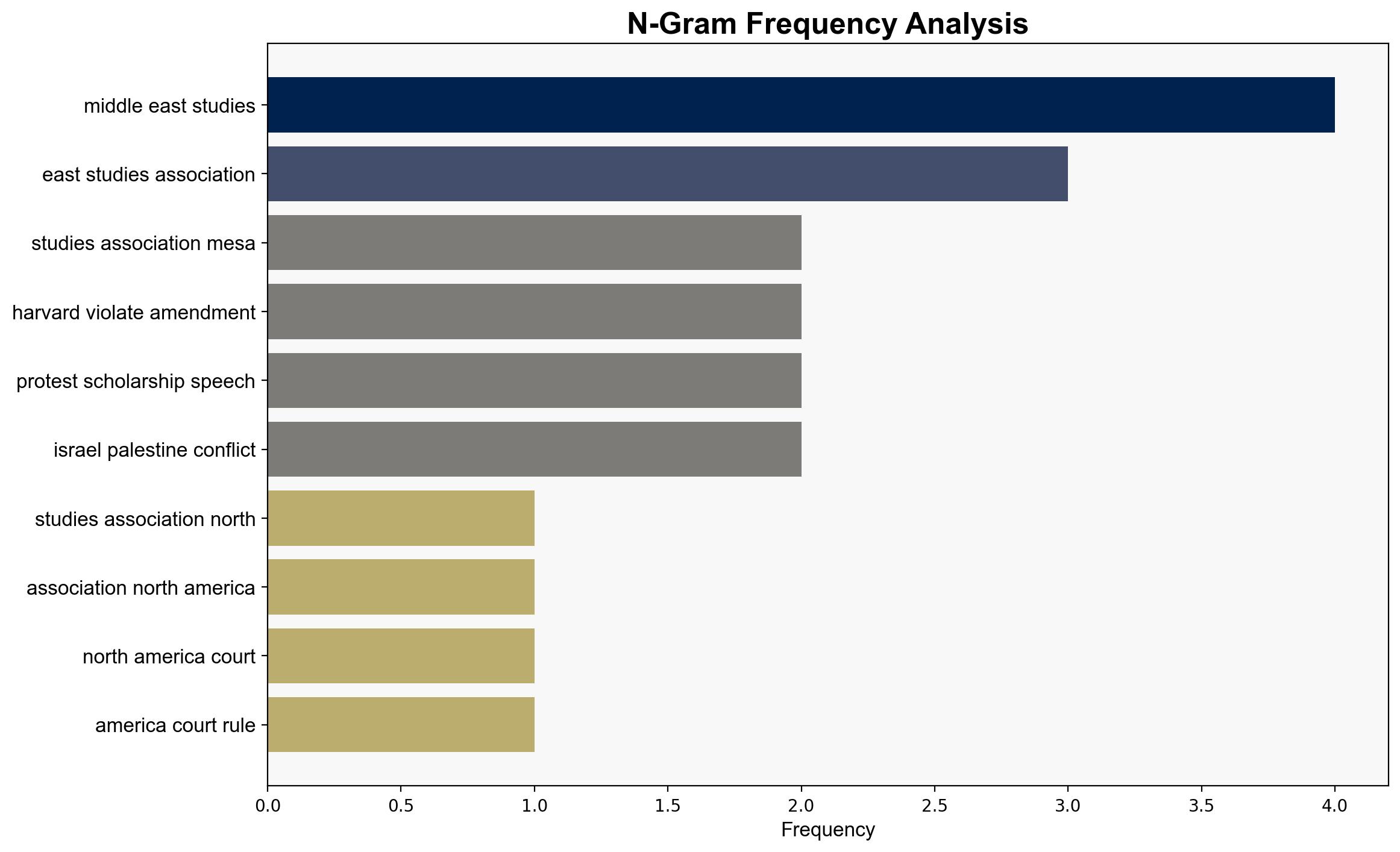Celebrating Court Ruling Striking down Trumps 2 Billion Funding Freeze on Harvard – Juancole.com
Published on: 2025-09-09
Intelligence Report: Celebrating Court Ruling Striking down Trump’s 2 Billion Funding Freeze on Harvard – Juancole.com
1. BLUF (Bottom Line Up Front)
The most supported hypothesis is that the court ruling is a significant victory for academic freedom, with a medium confidence level. This decision may set a precedent for future cases involving government intervention in academic institutions. It is recommended to monitor similar cases and advocate for policies that protect academic independence.
2. Competing Hypotheses
1. **Hypothesis A**: The court ruling is a victory for academic freedom, preventing government overreach and protecting institutions from politically motivated funding cuts.
2. **Hypothesis B**: The court ruling, while appearing to protect academic freedom, may inadvertently embolden institutions to ignore legitimate concerns about antisemitism and bias, potentially leading to increased tensions and scrutiny.
Using the Analysis of Competing Hypotheses (ACH) 2.0, Hypothesis A is better supported by the evidence, including the court’s decision that the government’s actions were pretextual and lacked substantial connection to the allegations of antisemitism.
3. Key Assumptions and Red Flags
– **Assumptions**: It is assumed that the court’s decision is based solely on legal merit without political influence. Another assumption is that the allegations of antisemitism were not substantiated by credible evidence.
– **Red Flags**: The reliance on the court’s interpretation of the administrative record without independent verification could be a blind spot. The potential bias in the source material should also be considered.
4. Implications and Strategic Risks
– **Implications**: The ruling could reinforce the autonomy of academic institutions, potentially leading to a more robust defense against future government interventions.
– **Strategic Risks**: There is a risk of increased polarization on campuses regarding Middle East studies, which could lead to heightened tensions and possible reputational damage to institutions perceived as biased.
5. Recommendations and Outlook
- **Mitigation**: Encourage transparency and independent reviews of allegations of bias to ensure balanced academic discourse.
- **Opportunities**: Leverage this ruling to advocate for stronger legal protections for academic freedom.
- **Scenario Projections**:
– **Best Case**: Academic institutions strengthen their independence and credibility.
– **Worst Case**: Increased scrutiny and potential funding challenges for institutions perceived as biased.
– **Most Likely**: Continued legal battles over academic freedom with varying outcomes.
6. Key Individuals and Entities
– **Allison Burroughs**: Judge who ruled on the case.
– **Harvard University**: Central institution in the case.
– **Middle East Studies Association (MESA)**: Filed an amicus curiae brief supporting Harvard.
7. Thematic Tags
national security threats, academic freedom, legal precedent, Middle East studies





